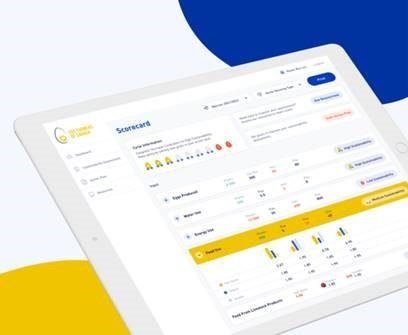“Egg farmers across the country are already collecting tremendous amounts of data related to production,” he told Farms.com. “For example, they keep track of how much water they use, how much feed they use, how much energy they use and how many eggs they produce per hen. They can take that information they already have and plug it into NEST.”

Secondly, the tool provides the user with rankings in quartiles compared to other farmers using the NEST tool.
“If a farmer accesses their data and it shows they’re in the bottom quartile of energy use, they can access, right from NEST, support and resources for best management practices to help them improve in that area,” Lambert said. “It empowers farmers to measure, manage and monitor the environmental footprint of their farm.”
NEST is currently in its beta format, so some features may be limited.
Producers have identified one feature they’d like to see added to future versions, Lambert said.
“Farmers have told us they want a chat feature within the tool itself,” he said. “That way they can communicate with other farmers directly about what practices they are implementing and begin having those conversations. So, we’ll be looking to add a chat function in the future.”
Sustainability is a common term in modern agriculture.
From an egg perspective, sustainability means a holistic approach, Lambert said.
“Farmers are compensated for their production to be economically sustainable,” he said. “Social sustainability means investing in food banks and international efforts. And then there’s environmental sustainability, which is what NEST helps with.”